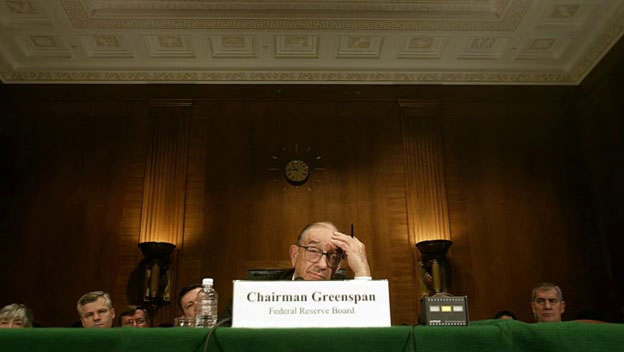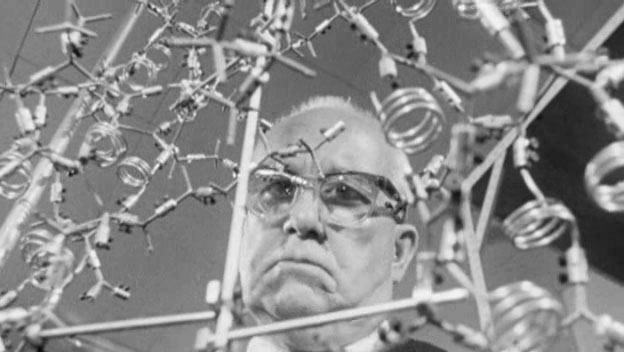Some TV watched the first half of 2023. I’ve also been watching Underground Railroad for over a year, and Yellowjackets s1 for all of 2023, and I’m only halfway through either of those. Hourlong shows are my kryptonite, unless they are The Kingdom. Also in the middle of a couple shows with Katy (Schmigadoon, The Diplomat) which I don’t know if she’ll want to finish. But here are some shows I actually watched.
–
Painting With John season 2 (2022)
“Welcome to Painting With John season 2, the show where I do not teach you how to paint.” I heard season 3 was coming (edit: it’s here!), so it’s time to catch up. Some good birds in the paintings this time. It’s not all paradise; John tells us of his bats and termites and flooding. With the lo-fi composited segments (Synchronized Swimming and Cowboy Beckett) I started thinking of the Talking Heads song “Found a Job” – this could be the show he’s singing about.

I stopped keeping track of specific episodes, but they hide from the camera, turn potatoes into spearheads, speak to the show’s subtitler, relive the 1962 world series, get in an argument with the moon, tell a story I hope is true about a conference in Barcelona, and dance like nobody’s watching.

–
The Last Movie Stars (2022, Ethan Hawke)
“Characters rub off under the actor. One of the areas of great discontent is they probably feel that as human beings they are merely a collection of old characters that they’ve played. I sometimes get that feeling about myself, that I have become a series of connectives between the parts of the characters that I really like and I’ve strung them together into kind of a human being.”
Really great doc about Paul Newman and Joanne Woodward, their lives and careers, getting deep into the art and philosophy of acting. A perfect lockdown series, largely archival footage with current actors reading interview transcripts from an old abandoned project, and Hawke zooming with the actors to discuss the movies and people involved.
–
TraumaZone: Russia 1985-1999 (2022, Adam Curtis)
1. We run from 1985 to 1989 pretty quickly, moving on to the good stuff. Chernobyl, Georgian protesters murdered by Russian army, retreat from Afghanistan, managers partnering with gangsters to loot industry, the first two oligarchs, some local keyboardy post-punk.
2. Yeltsin becomes president as communist supply chain plan falls apart. Each ep has a personal story wound through it – this one is a woman traveling to visit her sister for a food swap, and a girl begging for cash in the city.
3. Ukrainian wedding across the street from a Stalin-era mass grave. Moscow coup attempt while Gorbachev on vacation, Yeltsin disowned it. Military killed a bunch of people. Things moved really fast in Aug-Nov 1991 – all the power shifts at the top, and the titles say “and nothing changed.”
4. “Shock therapy” free market experiment does not work.
5. Protestors destroy parliament… which was then shot up with tanks. A mini-economy rises around a “very affluent minority.” Russia becomes more racist and opts to distract from troubles at home by invading Chechnya.
6. Lot of murdering going on, as the Chechen invasion goes badly and the Oligarchs buy up the country’s remaining resources. Wow at the oligarchs promising that if you vote for them, you never need to vote again.
7. The series comes to a merciful end, better in theory than as a viewing experience.



–
Atlanta season 2 (2018)
201. Alligator Man, feat. Katt Williams as Alligator Man
202. Al’s drug dealer robs him. Tracy (Khris Davis of the latest Space Jam) is staying w Al so Earn sleeps in a storage unit.
203. Clark County (RJ Walker of a Guy Pearce movie) has a manager who gets him advertising and soundtrack spots. Earn gets kicked out of every establishment trying to pay with hundreds – including Onyx, just down the street from Taqueria Del Sol.
204. Earn is a bad boyfriend, acts sullen at the Helen GA German festival then loses Van over a game of ping pong.
205. Al tries to get a haircut from hair/scam artist Bibby (comedian Robert S. Powell) who takes him on a ride of chaos through the city. Good one, and a welcome break from pitying Earn. Music by Flying Lotus and Thundercat, whoa.
206. Darius attempts to collect a free piano from the mansion of a tormented homicidal shut-in (Glover in albino-face). Get Out vibes.
207. Van goes to a New Year’s Eve party at Drake’s house, has encounters with guys attempting to be charming and coming off as creepy. Her friend Adriyan Rae ditches the group for another party… Danielle Deadwyler (star of Till) fails to start a fight with a white girl… Gail Bean gets too high, finds Darius who explains that the world is a simulation (and so was Drake).
208. Al’s celeb friend Ciara gives him advice on fame, but he’s not listening. So he tries to walk home, but gets robbed and threatened and chased and shot at and lost in the woods. Apparently filmed in East Point.
209. Trip to Statesboro on a bad campus visit. All their stuff gets stolen or destroyed, Earn loses a fight with Tracy (there for “security”) and maybe/almost gets fired.
210. Weirdly un-comic full-episode flashback. Al (in ROTC uniform) gets Earn out of trouble for wearing a bootleg shirt, deflects blame to another kid who kills himself. Filmed in Stockbridge, SE of the airport. Young Al played a bully in Brightburn, the suicidal kid is lately of Stranger Things.
211. On the eve of the Euro-tour, Earn is having doubts about his value and his future and his kid’s future, and I am calling bullshit because he’s rushed heading to the airport with a forgotten pistol in his backpack. But the show lets him get away, and Clark’s manager Matthew Barnes (lately of Creepshow: the series and Scream: the series) takes the fall.

–
Poker Face season 1 (2023)
episode 1: RIP to Natasha’s best friend Dascha Polanco (Joy, In the Heights), the friend’s bastard husband Michael Reagan (Adult Swim Yule Log) and casino manager Adrien Brody. Unknown whether casino security Benjamin Bratt (Demolition Man) will recur (edit: yep). Natasha Lyonne hitting the road, Adrien’s dad swearing revenge.
2: RIP to Brandon Micheal Hall (Search Party), dispatched by local creep Colton Ryan for a winning lotto ticket. Natasha is helped out by John Ratzenberger (!) and goth chick Megan Suri (of the new Searching sequel Missing) while trying to save trucker Hong Chau (Downsizing, Showing Up) before the bad guys catch up to her. Alice Ju (Russian Doll) is our new writer.
3: RIP to BBQ king Larry Brown, smoked to death by his brother Lil Rel Howery (TSA buddy in Get Out) for the crime of watching Okja and turning vegan. Co-conspirator Danielle Macdonald (Patti Cake$ herself) goes down too, Natasha helped out by voice-shifting DJ Shane Paul McGhie. Writer Wyatt Cain (Prodigal Son: a Lou Diamond Phillips crime psychologist series) and director Iain MacDonald (Shameless).
4. RIP to young drummer Nicholas Cirillo, electrocuted by his bandmates to steal his song, which he stole from a TV theme. Chloë Sevigny, John Darnielle and GK Umeh are a pathetic metal band touring on an ancient hit, their only new original song “Merch Girl” inspired by Natasha. MVP Chuck Cooper as the roadie who knows about capacitors in vintage amps. Writer Christine Boylan worked on Katy’s show Castle, director Tiffany Johnson was on the Dear White People series. Darnielle’s first Rian Johnson movie since The Life of the World to Come in 2010.
5. RIP to Reed Birney, presumably the Strawberry Mansion director’s dad, poisoned by the gals he ratted on in the 1970’s: TV veterans Judith Light and S. Epatha Merkerson. Natasha is working at the old folks’ home, befriends and then turns on the drug-dealing domestic terrorists. Not a big fan of the FBI-good-guy (Simon Helberg!), hippie-bad-guy formula, but easily the best written episode so far, excellently directed by Lucky McKee (The Woman, Sick Girl).
6. RIP to Jameela Jamil from The Good Place. Actors Ellen Barkin and Tim Meadows pretend to be trying to murder each other onstage, Jamil gets killed instead, and this somehow makes it not a crime? A young actor catches on, and stagehand Natasha intervenes before they poison her as well, then pulls a confession via hidden mic. Katy is getting tired of all the bad people and the killings. New director Ben Sinclair (High Maintenance) with a writer from a long-running crime show called Leverage.
7. Nobody dies for once, but the joint tampering by Tim Blake Nelson and Charles Melton (Hot Reggie in Riverdale) on a racecar leaves TBN’s daughter hospitalized. Natasha meets both the moms and all the drivers, puts the plot together with no cop involvement. Especially good episode, from the director of ep 3 and a Bojack Horseman writer.
8. The stop-motion episode… mad sfx god Nick Nolte works on his hermit epic with assistant Natasha while film producer Cherry Jones kills her guy (Star Trekker Tim Russ) and Nolte, and archivist Luis Guzmán helps Natasha (who is also this ep’s director) put it all together.
9. Less sweet sfx in this snowy cabin-bound ep, mostly just CG deer, and more gnarly injuries than ever. Natasha is nearly killed two or three times by Joey Gordo-Levitt, who holes up with his buddy David Castañeda in a motel, murdering klepto car aficionado Stephanie Hsu to cover their tracks and reprosecuting the murder they did ten years prior. Rian is back, written by two Zuckermen, who worked on a couple shows Katy watched.
10. RIP to Ron Perlman, the big boss who’s been chasing Natasha across the country, murdered by his flunky Ben Bratt, who defected to mobster Rhea “no relation” Perlman. Agent Helberg is back, Natasha gets little sympathy from sister Clea DuVall (Carnivà le, The Astronaut’s Wife) and goes back on the run. Directed by Janicza “Zola” Bravo, with style to spare.
–
Planet Earth (2006)
Apparently there’s also a U.S. version with Sigourney Weaver voiceover, so I suppose we’ll just have to watch this whole series again someday. Some of the footage felt familiar, and I just figured out why.
–
The Kingdom season 1 (1994, Lars Von Trier)
Extremely film-grainy restoration of this show I originally watched on dubbed VHS.

Most actors are best-known for this or some other Lars movie. Mogge (young glasses prankster, son of an admin, doesn’t really work there) showed up in Flame & Citron. His blackmailer Hook played a doctor in Downsizing. Old Mrs. Drusse (orderly Bulder’s mom who can hear ghosts) was in the psychokinetic doppelganger film The Man Who Thought Life. Red-haired Rigmor, deluded because she likes Helmer, played the cave woman in Jauja. And Bondo, who transfers a rare cancer into his own body to study it, was in Dreyer’s Gertrud.

They locate the dead girl Mary, tormented in life by her father Udo Kier then kept in a glass display for decades until buried at Bulder and company. But the spirits are unappeased, as Dr. Judith gives birth to… Udo Kier.























